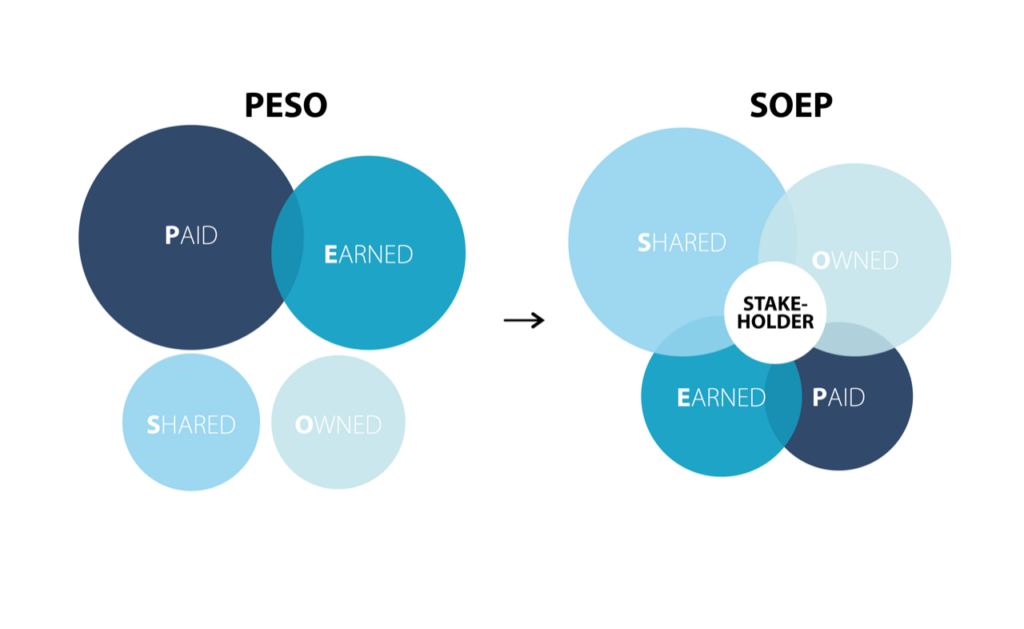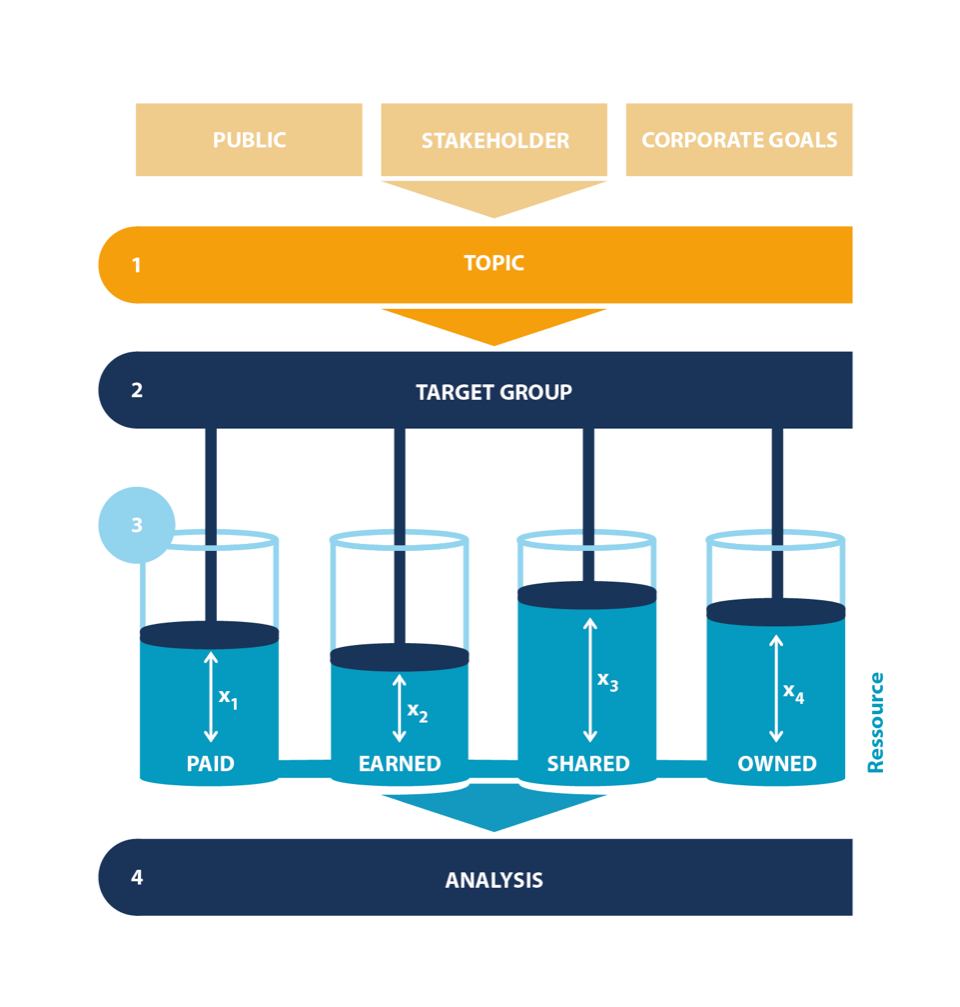In late 2023, the book “Holistische Social-Media-Strategien” was published by Springer. With the book, the editors, Professors Anne-Kristin Langner and Gabriele Schuster, both of International University (IU) in Germany, attempt to develop a holistic and strategic approach to social media. They have assembled an interesting mix of scholars who tackle this issue by looking at social media from multiple perspectives (e.g. economics, communication, and design) and incorporating recent trends (e.g. the superstar economy/influencer marketing and the Metaverse). I have previously worked with Professor Langner on the curriculum of the study program on social media which she runs at her university.
A chapter cowritten with Judith Zeeb, a graduate from Munich Business School, now at Oliver Schrott Kommunikation, an agency, made it into the book. The chapter’s title is: “Assessing the PESO Model in the German Automotive Industry: Results of an Expert Study and Introduction of the Content Flow Model“. Please find the abstract, some key insights, and the links to the full version of the chapter below.

Abstract: This chapter investigates the paradigm shift in corporate communications strategy in the German automotive industry and proposes a new model, the Content Flow Model. To do so, structured interviews with 13 selected corporate communication experts were conducted. The study is based on the PESO model, which is commonly used by communication researchers and practitioners to define media strategies and classify the content produced by corporate communication departments. With the rise of digital and social technologies over the past decades, the shared and owned categories grew significantly in importance, overtaking the paid and earned categories, leading to a conversion of the PESO model to the SOEP model.
The evaluation of the interviews shows that all channels of the SOEP model remain relevant, yet their relevance differs according to their applied context. From an expert perspective, the different components complement but do not replace each other. Based on these considerations, a Content Flow Model is proposed. The Content Flow Model extends the traditional PESO model in that it goes beyond a mere classification and takes the goals of an organization, its target group(s), the choice and weighting of different media channels, allocation of resources, as well as an analysis of goal achievement into account, allowing for more sophisticated research and implementation efforts.
From the PESO to the SOEP Model
In recent years, there has been a notable shift in the communication strategies of automotive companies from PESO to SOEP (see Figure 1 below). That means shared media (e.g. social media) and owned media (e.g. newsrooms) have become relatively more important compared to paid media (traditional advertising) and earned media (e.g. reports from journalists).

The Content Flow Model
The expert interviews with senior managers of the five German OEMs and tier 1 suppliers show that the mere ranking of PESO/SOEP channels is no longer sufficient. As a consequence, we argue, a more sophisticated model is needed that takes into a account the goals of an organization, its target group(s), the choice and weighting of different media channels, allocation of resources, as well as an analysis of goal achievement. We propose such a model and call it the Content Flow Model (see Figure 2 below).

Reference:
Zeeb, J., & Wagner, D. 2023. Assessing the PESO model in the German automotive industry: Results of an expert study and introduction of the Content Flow Model. In A.-K. Langner & G. Schuster, Holistische Social Media Strategien – Innovative Unternehmenspraxis: Insights, Strategien und Impulse: 143-157. Wiesbaden: Springer Gabler. [Draft, Chapter, Book]

